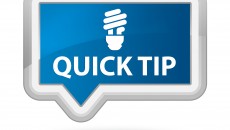Although training specialists and scholars acknowledge that having an evaluation/examination system is an essential part of the training process, there is much debate on what should be included in the evaluation model. An effective evaluation system or examination format should be:
- Reliable: Marking, measurements and evaluations are conducted by an industry expert under the same conditions for each trainee.
- Valid: Covers all areas of training/knowledge/skills.
- Fair: Targets individual’s skills rather than the group’s skills as a whole.
Trainers, teachers and other training specialists are always the ideal practitioners of training evaluation and assessment. They are capable of choosing the best evaluation tool(s) in order to identify and address skill gaps and weaknesses, as well as determining whether the training has served its objectives. The following tools are the most common and have proved their efficiency pretty well in different training assessments:
- Direct Verbal Questions.
- Learners’ portfolios, as they provide vital information to both learners and training specialists about the learners’ skills’ and current levels.
- Questionnaires.
- Information check and review.
- Monitoring and observation.
The challenge now is, how much are the soft skills trainers and training specialists aware of those tools?
More than that, some may be pretty aware, but how do they adhere to the concept and efforts of evaluation? How much will training companies invest in training the soft skills trainers themselves to create and develop creative assessment tools? I believe the answers would definitely vary if soft skills trainers are considered the most valuable asset in some training companies, and they are treated as the least favorite trainers in others.




